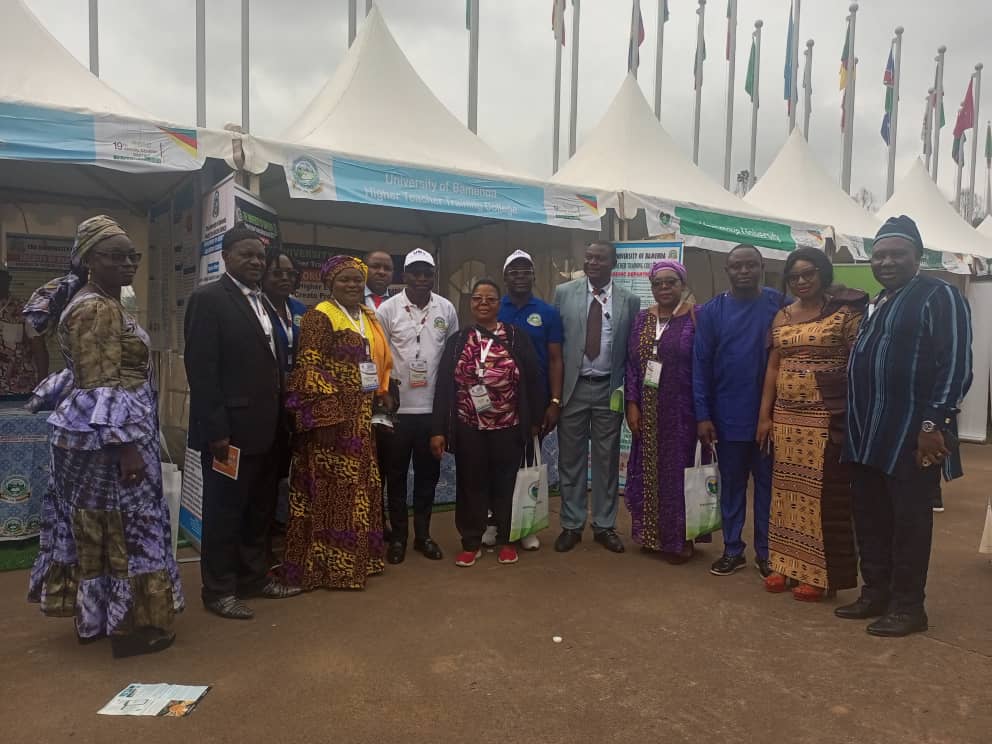RUFORUM
- 30 Oct, 2023 - 03 Nov, 2023
- 03 Nov, 2023
- Cameroon, Bamenda

Event Description
The Centre for Cybersecurity and Mathematical Cryptology is present at the RUFORUM 2023 holding in Cameroon.
CLIMATE SMART AGRICULTURE PROMOTION
Cybersecurity and mathematical cryptology can be related to climate-smart agricultural change in several ways. Here are a few key connections:
1. Data Security: Climate-smart agriculture relies on the collection and analysis of large amounts of data, including weather patterns, soil conditions, and crop performance. Protecting this data from unauthorized access, manipulation, or theft is crucial. Cybersecurity measures, such as encryption, secure data storage, and access controls, can help safeguard sensitive agricultural data, ensuring its integrity and confidentiality.
2. Resilience and Disaster Recovery: Climate change introduces new risks to agriculture, including extreme weather events and natural disasters. These events can disrupt agricultural systems and compromise food production. Incorporating cybersecurity measures into climate-smart agricultural systems can help enhance their resilience and facilitate faster recovery after a disruption. This includes implementing backup and recovery strategies, redundancy measures, and incident response plans to ensure the continuity of operations.
3. Intellectual Property Protection: Climate-smart agricultural innovations, such as new crop varieties, precision farming technologies, or data-driven decision support systems, often involve substantial research and development efforts. Protecting intellectual property rights is crucial to incentivize innovation and investment in the sector. Mathematical cryptology techniques, such as digital rights management and secure information sharing protocols, can help protect intellectual property in the context of climate-smart agriculture.
4. Internet of Things (IoT) Security: Climate-smart agriculture often involves the use of IoT devices, such as weather stations, soil sensors, and automated irrigation systems. These devices are interconnected and generate vast amounts of data. However, insecure IoT devices can become entry points for cyberattacks, potentially disrupting agricultural operations or compromising data integrity. Applying cybersecurity principles, such as secure communication protocols and device authentication, helps mitigate these risks.
5. Supply Chain Security: Climate-smart agricultural practices often involve complex supply chains, connecting farmers, distributors, processors, and retailers. Ensuring the security and integrity of this supply chain is essential to prevent tampering, counterfeiting, or contamination of agricultural products. Mathematical cryptology techniques, such as digital signatures and blockchain technology, can provide mechanisms for secure and transparent tracking of products throughout the supply chain, reducing the risk of fraud or malicious activities.
By leveraging cybersecurity and mathematical cryptology principles, climate-smart agriculture can benefit from enhanced data security, improved supply chain integrity, increased resilience to climate-related risks, and protection of intellectual property. These measures contribute to building trust, fostering innovation, and ensuring the long-term sustainability of agricultural systems in the face of climate change.
